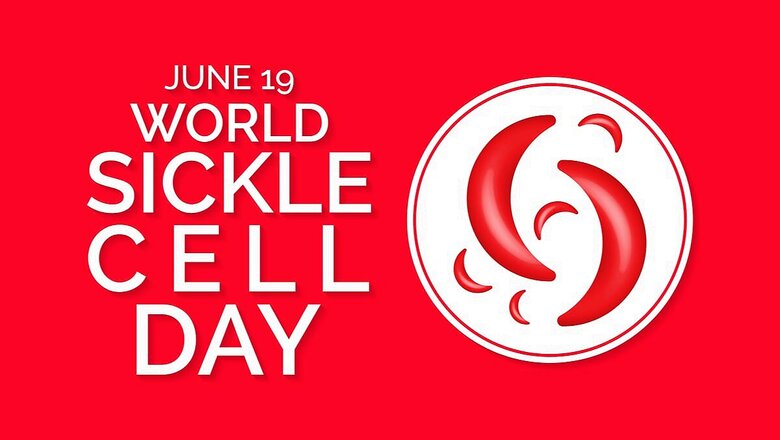
views
World Sickle Cell Day is marked on June 19. The day as the name suggests is for raising awareness about sickle cell disease. This disease is a type of blood disorder which gets passed down from parents to children. It is primarily a group of disorders which affects the molecule in red blood cells, and haemoglobin. Those diagnosed with Sickle disease have haemoglobin S. This is an atypical haemoglobin molecule that has the tendency to distort red blood cells into a sickle.
The day came to existence in 2008 after the United Nations General Assembly (UNGA) acknowledged sickle cell disease as a public health problem. The UNGA also recognised Sickle disease as one of the first genetic diseases.
The symptoms of the disease generally appear at the age of five months and tend to change over time. Even though the symptoms vary from person to person and can change from time to time. Some of the common symptoms of Sickle Cell Disease include Anaemia, Swelling in hands and feet, eyesight problems, pain, delay in growth and regular infections.
The disease can be detected during the screening process of a newborn. If there is a family history of the Sickle Cell disease, then it can also be diagnosed at the time of pregnancy. The only cure of this disease is either stem cell transplant or bone marrow. If it is recognised at an early stage, then timely treatment can help with dealing with the symptoms. Apart from stem cell transplant, the symptoms can also be dealt with the help of antibiotics, pain killers, periodic blood transfusion, and vaccinations.
Here is a list of types of sickle cell disease:
Hbs beta thalassemia: This type occurs when the sickle cell gene is passed from one parent, while the beta-thalassemia is passed from the other one.
HbSS: It is a severe type of sickle cell disease which occurs when the child inherits sickle cell gene from both the parents.
HbSc: This occurs when one parent has a sickle cell gene and the other has a gene from abnormal haemoglobin.
Read all the Latest News, Breaking News and Coronavirus News here.



















Comments
0 comment